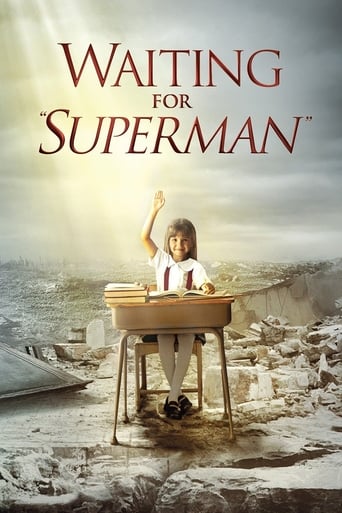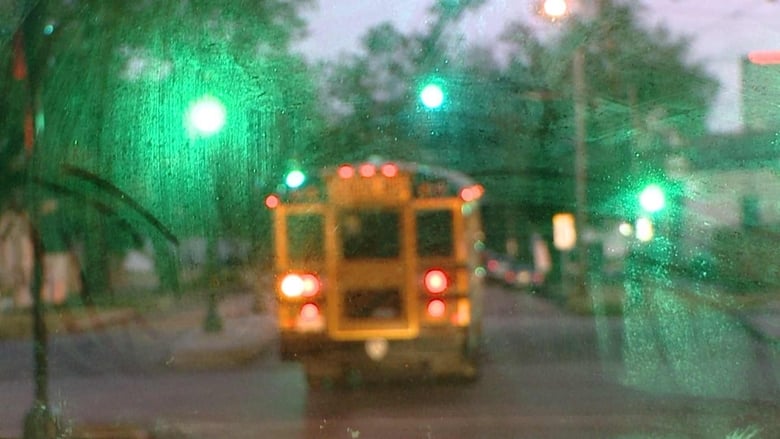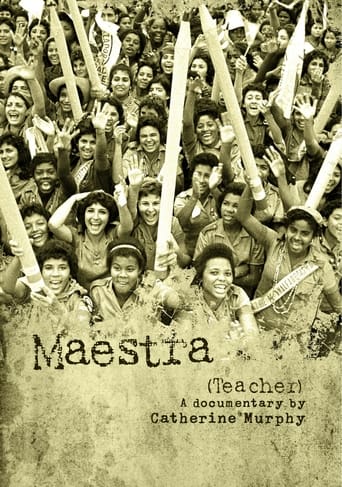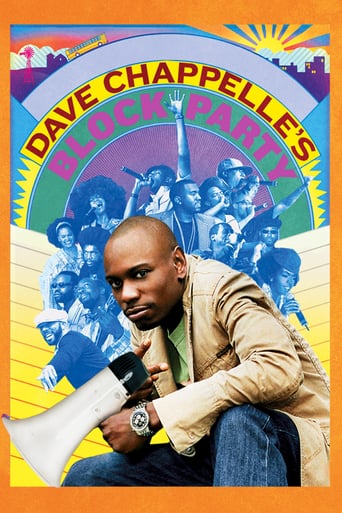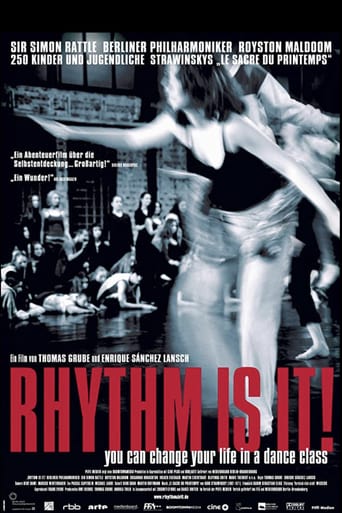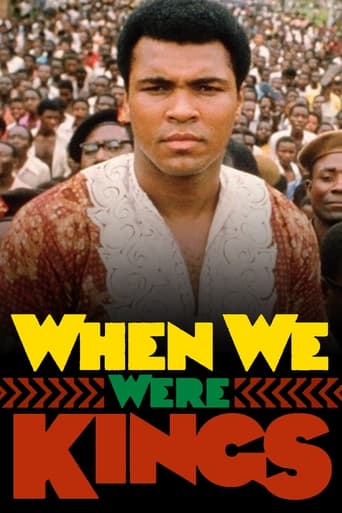Waiting for "Superman" (2010)
Gripping, heartbreaking, and ultimately hopeful, Waiting for Superman is an impassioned indictment of the American school system from An Inconvenient Truth director Davis Guggenheim.
Watch Trailer
Free Trial Channels
Cast


Similar titles
Reviews
Save your money for something good and enjoyable
It was OK. I don't see why everyone loves it so much. It wasn't very smart or deep or well-directed.
It’s not bad or unwatchable but despite the amplitude of the spectacle, the end result is underwhelming.
This film is so real. It treats its characters with so much care and sensitivity.
"No child left behind" is a line that many have heard constantly when referring to public education. However, when looking at the failure rates in many inner-city schools, it is visible that many children are being left behind. In the documentary directed by Davis Guggenheim , "Waiting For Superman," the question who is to blame and what can be done is raised as they follow the course of a couple of children who are trying to enter a charter school via a lottery. Although he failed to show the public school teachers side of the story, the director made a very strong and effective argument against the public schools system through the use of statistics, appeal to emotion, and call for action, but not so much for charter schools.According to Guggenheim, a part of the issue is the public school system itself and its web of "power". Every district has its own set of rules and standard apart from the ones nationally enforced. In the film this was explain quite simply. If a student fails a test in one district's school, that same test may still be a passing grade in another district. Every school district can have different standards and that can really cause problems. If all schools do not have the same standards then that only leaves gaps in the children's education when the move on into higher education such as high school and college. Equal education for everybody is one of the main points of the film. Children in low income communities are not receive equal education when compared to children in wealthier places, such as the suburbs. By following this handful of low-income students in the road to attempting to escape this system and move into a charter school, the director appeals the audience's emotion. They are showing small, innocent children who have big hopes and dreams for the future go through the struggle of having to attend "failure factories", as they are referred to in the film, and face the inequality of education. Additionally, Guggenheim goes on to blame teachers and the teacher unions as the biggest reasons to the failure of public schools. It is stated in the film that there are great teacher, but there are also some very terrible ones and unfortunately these bad teacher cannot be fired as easily. According to statistics given in the documentary, some teacher are covering only 50% of the required material while other teachers covering up to 150% of the material and yet they get paid the same. The reason is simple: the teacher union. According to the contracts in the union, schools are not allowed to make pay distinctions among the teachers for being "better" teachers. What is even worst is the fact that due to the tenure teachers have the terrible teachers cannot be fired. Teachers who are failing to do their jobs correctly are being kept in these schools and continue to take opportunities away from their students. Charter schools are in a way offered by the director as a type of solution to the flaws in the education system. All throughout the film, charter schools are spoken pretty highly of and the whole film revolves around a group of children who are so desperately attempting to be enrolled into a charter school through a random selection. Slowly but surely, charter school are getting more attention do their "high success rate" more parents want their children enrolled. The director makes sure to put these types of public schools that are independently run as great institutions where there are greater success rates and where children are coming out better prepared for what lies ahead, but, and here is the huge but, it was mentioned in the documentary that only 1 out of 5 charter schools are producing these outstanding results. It was mentioned so fast in the film that people could have easily missed it. Four fifths of charter schools are also not providing the results that are needed for change. The director failed to acknowledge the reasons as to why these independently run schools are failing and that is a tremendous flaw in his argument pro charter schools. If these charter schools were really the solution then why are only very few of them actually succeeding?The documentary itself is a demand for action.There is a particular quote in the film that states that great school will not come from lotteries done by charter schools are by Superman. Great schools will come from us, the people. If the people are willing to voice their opinion on the terrible education the children are receiving then there can be changes to the system. People need to voice their opinion against the unequal power web and the inability to fire teachers who are not doing their jobs. The power for the change lies in the hands of the community, they need to make their voices heard for the greater good. The solution may not be charter schools, but there is still hope. According the film, in order to begin the process of restoring the public education system there is a need for, "quality teacher, more class time, world class standards, high expectations, real accountability " (Guggenheim, "Waiting for 'Superman' (2010)") It all boils down to teacher have to be the very best, people have to be willing for change, communities have to commit to the schools, and the people must be willing to act.The documentary, "Waiting For Superman," told a very the very compelling stories of a group of students attempting to escape the flawed public education system while also underlining the issues in the system and why it is not succeeding. The director blames the different standard in every district and also the teachers. Through the use of data, emotion, and a call for action, the documentary "Waiting For Superman" had a powerful and effective message.Work cited Waiting for 'Superman' (2010) (Motion picture). (2011). Paramount Pictures.
Waiting for "Superman" is one of those documentaries, I truly wanted to see, when it came out. Now, that I saw the film, I wish, the film could had done better for itself. Don't get me wrong, it's not a bad movie. It's just misleading as hell and doesn't cover all the whole educational system of the United States. Directed by Davis Guggenheim, the film analyzes the failures of the American public education system by following several students as they strive to be accepted into a charter school. The movie often follow the teaching of Geoffrey Canada, an educator and activist for school reform, describing how the school system need to be fixed. Throughout the documentary, different aspects of the American public education system are examined. It was very interesting on what they pull out, like how bureaucracy is killing our public education system. I did have to agree with most of what the movie is saying. I agree that firing bad teachers is good, and firing tenure teachers does prove a problem. I'm pretty open to the idea of reforming corrupt unions and reducing overblown bureaucratic institutions. Still, the movie is so- one sided approach, that doesn't balance out. The movie nearly place all the blame for poor student performance on teachers and their unions. The movie act like no other groups are apportioned any responsibility for student performances. Does accountability extend only to teachers, and not to the parents or the student, themselves? Apparently, for Davis Guggenheim, it does. What the movie fails to take account is how much parental involvement, income level, educational level of the parents, the surrounding culture in which the children live, violence, drug addiction and dealing, unemployment, incarceration rates among the parents and relations of the students, sleep, nutrition, etc.. affect how a student does in school. They are not even given much time in the film to explain, or not even acknowledged as factors. The film would have you believe that if we just busted the teachers' unions, then all the "achievement gap" would disappear, all the kids in those tough urban districts would come back to school and complete their high school education and go on to college. This is only wishful thinking and not a solution. Putting all the blame on teachers is wrong. One thing that I really didn't agree with, the movie is how charter schools better than public schools. The movie makes it look like charter schools are the best out there, and the worst thing to happen to a poor family is having to go to a public school. Shockingly, as Stanford's in depth Credo study of charter schools shows, charters school actually underperform public schools. Only 15% outperform traditional schools, while 35% underperform traditional schools. The other 50% is about equal. This is pretty bad. The movie focus on how corrupt the public school, but fail to show how some charter schools could be dishonest as well. Some good examples are overworking teachers by paying them lower cost, being exploitation by for-profit entities, refusing to help special education students, co-location controversial, promoting racial segregation, or the lack of teaching second language learners. Even the film's main man, shouldn't be treated as a saint. Geoffrey Canada has been known to expel an entire class of low-performing children, before test day due to fears that it would throw off his good performance statistics at his own charter schools. Canada also has a lot of board members of wealthy philanthropists with large wallets to fund his schools. With assets of more than $200 million, his organization has no shortage of funds. Saying that public school are overfunded is an understatement when there is clear debate about charter schools being over-funded and underperforming. If all inner-city schools had the same resources as his, maybe they would have the same good results. It doesn't help the film when the statistics statement that the film are saying, are poorly researched. The movie claims for example that Woodside High School, only sends a third of its students to college and only graduates 62 percent of them, but what the film excluded, is the fact that some students went to out-of-state colleges. This means that their graduation rate is more like 92 percent. That's very distortion. Another big example is the statement that the film's claim that "70 percent of eighth-grade students cannot read at grade level,". It's clearly a misrepresentation of data from the National Assessment of Educational Progress. The film assumes that any student below proficient is "below grade level," but this claim is not supported by the NAEP data nor any major educational program. The film got so bad at researching their data that another film was create in 2011, 'The Inconvenient Truth behind Waiting for Superman' produced by the Grassroots Education Movement to couther what they were saying. One thing, I really wish the movie touch upon was upper education as well. There were little talk about college and university. Other things, they didn't talk about are Magnet schools and home schooling. It didn't even mention how military recruiters could access to 11th and 12th grade students' names, addresses, and telephone listings when requested. The movie has gross over simplification, drastic omission, direct and subtle misdirection and false causation false emphasis that cause this movie a lack of replay value for me. It lacks alternative proposals and solutions like having more dates for schooling by reschedule the school calendar. Another is offering wider range of cheaper but higher education. Last is eliminating Property taxes. All this proposals could had made this documentary even better. Like I said before, the documentary isn't the worst. It's pacing and entertaining value is pretty weak, but overall, it's still a solid film. Still, evaluating school communities solely on test scores leaves a lot to be desired.
Davis Guggenheim, documentary filmmaker analysis the disturbing truth in which the American Public Education system harms our children because of their lack of attention and care for the children who attend public schools. He also explores the roles that education reformers and charter schools could play in offering a better and hopeful future by bettering the public school systems. In the beginning Guggenheim thought that the idea of a public school would work. In 1999 he made a documentary about teachers. He watched them dedicate their time to make public schools work. Ten years later it was his time to choose which schools his children were attending, believing and living by the ideas of public school he took his children to a private school. He was frightened to take his children to a failing school, a public school.Guggenheim states, "No matter who we are and what neighborhood we live in wanting to believe in our schools is like taking a leap of faith." He knew that his family was privileged enough to bypass the troubled, poorly performing public schools but he was concerned about all those other children who didn't have the same privilege. Guggenheim was concerned and struck by many questions he could not find the answer to: What about the children who don't have a choice? What type of education are they receiving? Where is their assurance that they would have the chance to live out their dream, to fulfill their vast potential? How worried are the children's parents when they drop off their kids at school in the morning? These questions are what made Guggenheim explore the different schooling systems and the different teaching methods that brought successful and which ones were hurting the students. We constantly see statistics about students dropping out, science and math scores falling, and schools closing due to lack of funding. What we refuse to see are the names and faces of the children whose entire futures are at stake because change isn't being made. At some point in time the American public education system was a model admired by everyone. Today other countries are surpassing us in every respect. The public schools systems were made with a purpose back in the industrial times. That purpose being that some students would graduate to become lawyers, doctors, accountants and the rest of the students who weren't as advanced as those who graduated would end up in factories. But times have changed and the schooling system needs to change as well. The slogan "No Child Left Behind" has become a cynical punch line. Bianca, Emily, Anthony, Daisy, and Francisco are five students who deserve better. By investigating how the current system is actually obstructing their education instead of bolstering it, Guggenheim opens the door to considering possible options for transformation and improvement. Though Guggenheim gives out these possible solutions to improve the education of those students who aren't as privileged as those who can afford private schooling, his solutions lack the fact that societal inequities are more powerful than any force teachers can bring to bear in schools. In his film Guggenheim mentions that maybe the neighborhoods aren't what makes the school bad, but its the schools that make the neighborhood bad. Guggenheim bashes many public school teachers in his film, but I feel that he doesn't give enough credit to them. Many public schools teachers have to be more than just a teacher, they have to deal with the problems kids have outside of school as well. He shows us five different students who are trying to get out of the public school system but all of these students have parents or guardians who care about them and their future. But what happens to all those kids who don't have someone to push them forward are they just forgotten in the public school system? Guggenheim's idea of creating more charter school and magnet school is a start but it shouldn't be the only thing that should be changed. Children should be able to attend any school in any neighborhood and receive the same education that another child is receiving in a private school. Money and poverty is a huge disadvantage for these kids when it shouldn't be. A students knowledge shouldn't be measured by how much money they have but how badly they want to succeed. Davis Guggenheim documentary Waiting for "Superman" is a good film that informs you about the differences and unfairness of the public schooling system but I don't completely agree with his solution because there is more education than just the school you attend.
Wow. This ranks as one of the most heavy-handed, one-sided, emotionally manipulative pieces of propaganda masquerading as a "documentary" that I've ever seen.For all the things that are wrong with the American education system that desperately need to be addressed, this movie's sole intent is to bash overworked, underpaid teachers by calling them out as "bad" and to vilify unions as self-interested organizations of malicious intent.Are there "bad" apathetic teachers? No doubt. Every profession has a few bad apples. Is it so pervasive that it is the principal cause of the downfall of education in America? Puh-lease. This documentary would have you believe that there are FAR MORE "bad" teachers than good, and that it's their amoral unions doing everything in their wicked power to protect them by ROBBING YOU OF YOUR TAX DOLLARS to do it. It's sick propaganda and must be called out as such.If Americans long for education reform and to "do right for their kids" have a good, honest unflinching look at how governments in other developed nations tackle public education to great success. Failure of the education system in America has more to do with a culture of corporate greed, political corruption, racism, and poverty. All the things this "documentary" so blithely ignores in order to specifically target teachers and unions as the root of the evil.After failing to accurately and fairly identify the problem, this "documentary" does very little to offer a reasonable, workable solution. It is misinformed, manipulative and misleading. If you really care about how your children are being educated, you'll look further than this movie for answers.

